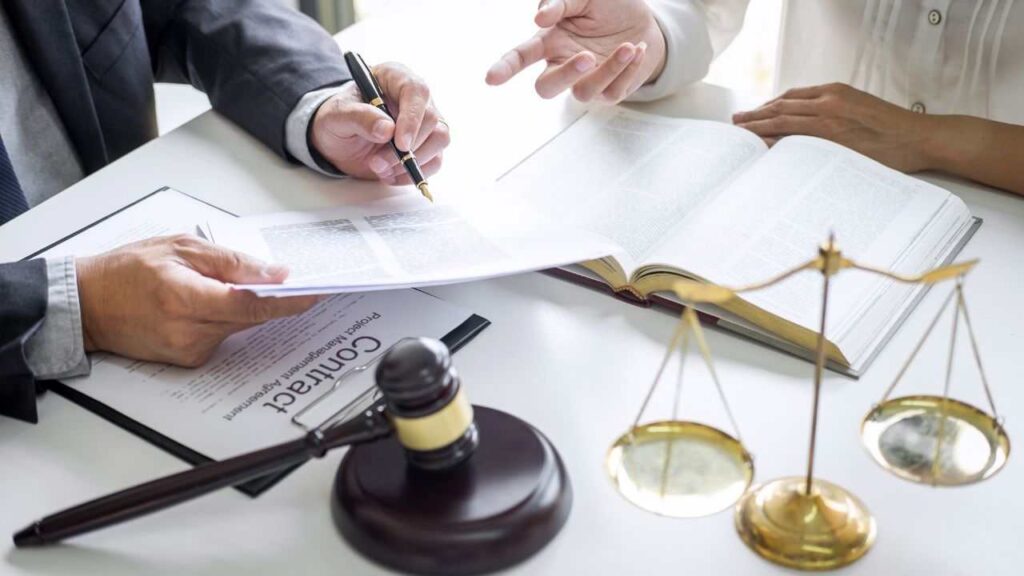Top supreme court lawyers have immense qualifications and experience that sets them apart. They have often clerked for supreme court justices early in their careers, gaining unique exposure to the court’s operations and the types of issues it considers. Most have 20 or more years of overall legal experience, trying numerous cases in lower courts and developing an outstanding appellate record before the highest court.
They also have substantive expertise in specific legal fields like constitutional law, civil rights, criminal law, or business law that are regularly before the top supreme court lawyer. Their vast experience handling complex legal issues ensures they fully understand how to strategize for any case and advocate positions optimally.
Strategic and Analytical Mindset of Top Supreme Court Lawyers

The litigation process leading up to a Supreme Court hearing requires a meticulous long-term strategy. Top Supreme Court lawyers bring laser-like focus and analytical skills to map out every stage of potential proceedings, considering all factors that could impact the justices’ views.
They analyse precedents, constitutional principles, other relevant cases pending judgement, and the court’s ideological leanings to craft compelling legal rationales. Even before accepting a case, they evaluate its merits and likelihood of granting certiorari. Such strategic foresight and analytical acumen help choose the best arguments to attain favourable rulings.
Storytelling and Narrative Development Talents of Top Supreme Court Lawyers
At the Supreme Court level, persuasion occurs not just through legal arguments but also effective storytelling and narrative. The top attorneys have a gifted capacity to distil complex cases into succinct yet compelling human stories. They draw the justices in by narrating how their rulings could meaningfully impact everyday lives, liberties, businesses, or policies.
Storytelling lets them discuss dry legal principles in a way justices can intuitively grasp. It helps frame issues from diverse ideological perspectives and show why their position best upholds constitutional values or precedents. Such narrative skills are paramount for justices unsure how to rule.
Oral Advocacy Mastery in Top Supreme Court Lawyers
While writing skills matter, winning at the supreme court ultimately depends on verbal persuasion during oral arguments. That’s where the very top Supreme Court lawyer demonstrates virtuosity. They have innate preparation habits and can discuss any aspect of a case off-the-cuff, fielding rigorous questioning from multiple justices.
Top attorneys stay calm under intense scrutiny and quickly rebut opposing arguments. Their clear, concise delivery ensures key points don’t get lost. Nuanced body language and inflection added to formidable substantives let them optimally convey their narrative. Such oral advocacy mastery moves even ideologically resistant justices in their favour.
Mastery of Amicus Brief Strategies In Top Supreme Court Lawyers
In addition to their own oral advocacy, top Supreme Court lawyers strategically leverage amicus (“friend of the court”) briefs to maximise persuasive impact. They consider which stakeholder groups and trusted organisations could most effectively aid their legal position and narrative. Leading practitioners then provide amicus partners detailed guidance on the case specifics and ideal arguments to reinforce.
Coordinating amicus participation helps justify why a particular interpretation best serves important policy interests or societal implications. It also signals the case’s wide ramifications to justices unsure of proper remedy. Orchestrating amicus support demonstrates the lawyer’s ability to build a consensus coalition beyond their client alone.
Pivotal Influence on Legal Development of Top Supreme Court Lawyers
By virtue of their superior skills, top attorneys play an outsized role in developing new areas of law and resolving splits between circuit courts. When the Supreme Court agrees to hear a case under their advocacy, it represents a chance to establish important precedents with nationwide implications. Past success in moving the court on key rulings means their legal rationales often determine the direction in which the entire field progresses.
For instance, landmark cases on issues like civil rights, immigration, national security, and corporate governance resulted directly from their innovative arguments accepted by justices. Rather than just reacting to changes, these lawyers proactively shape legal evolution.
Power and Reputation Of Top Supreme Court Lawyers
Lawyers who have proven themselves before the court over many cases develop respected reputations and staying power no short-term practitioner can match. Justices and their clerks grow familiar with their preparation habits, integrity, and record of sound guidance. That accrued trust grants top attorneys privileges like additional argument time, more leeway shaping discussions, and opportunities to represent clients who might otherwise find the court doors closed.
Even when the odds seem long for acceptance or success, their reputational capital gives hope. It also lets them choose impactful cases that fit their long-term agendas, not just those who can pay fees. Reputational equity thus magnifies their ability to drive discussion of nationally important issues.
Ability to Build Consensus
Given the Supreme Court’s ideological divides, building consensus is vital. Rather than ideological grandstanding, top lawyers focus on how their positions could appeal to the centre, by emphasising shared legal traditions or judicial restraint principles. They address each justice’s perspectives with empathy and bring others onboard their view subtly.
Even in 5-4 decisions, their ability to shift one vote makes all the difference. Meanwhile, losing unanimous cases suggests flaws were clearly explained. By building rapport and gaining trust, they encourage justices to see issues from their client’s angle over partisan predispositions alone.
Conclusion
A mix of extensive qualifications, long-term strategic thinking, compelling storytelling, oral advocacy talent, and consensus-building sets leading Supreme Court practitioners apart. Their combination of substantive expertise, persuasive skills, and ability to navigate ideological divisions optimally serves clients and advances the law. For organisations and individuals needing top-level representation before the highest court, retaining such lawyers greatly increases the chances of obtaining favourable rulings.













